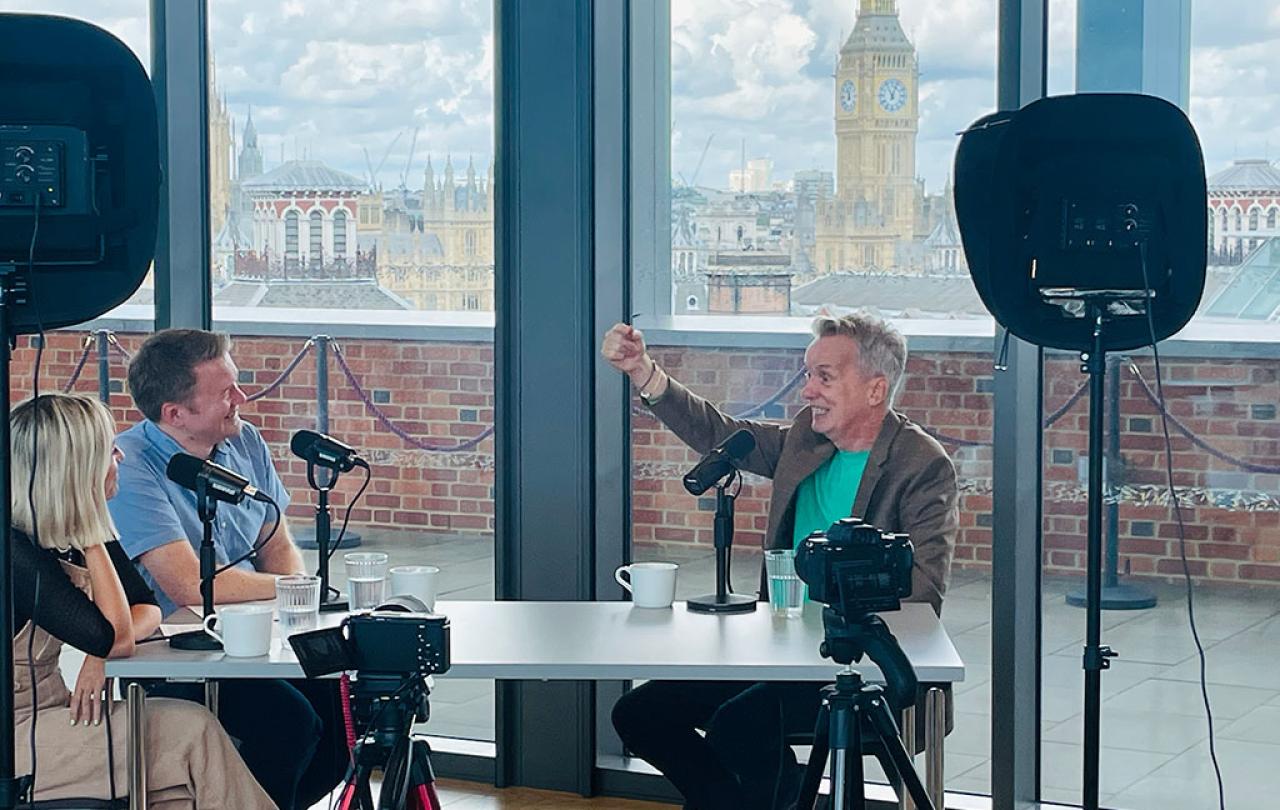
The long awaited season two of Re-Enchanting from Seen and Unseen has gone live. Belle Tindall and Justin Brierley are back with the podcast show recorded at the top of Lambeth Palace Library overlooking London. Here’s the line-up of guests joining them throughout October, November and December.
They include Molly Worthen, Professor of Religion at the University of North Carolina Chapel Hill, who will be telling her story of conversion from agnosticism to Christianity only last year.
Glen Scrivener will be share about why the air we breathe has been shaped by the Christian story.
TV historian Suzannah Lipscombe will be talking about her faith and the female side of history.
We will be taking a deep dive into Disney at 100 with special guests philosopher Esme Partridge and film reviewer Yaroslav Walker.
Theos think tank director Chine McDonald will be talking about why God is not a white man.
MIT researcher Ros Picard will share the perils and promises of AI.
Turning the tables, Belle, and Graham Tomlin, will talk with Justin about the surprising rebirth of belief in God.
And to kick it all off, the first episode of season two is with comedy superstar Frank Skinner talking about how his comedy and Catholicism fit together, plus more guests to be announced.
Look out for season two episodes dropping every Wednesday over the next 10 weeks. And, please continue to rate, review and share the podcast with others as we continue to explore how our post-Christian secular world can be re-enchanted with the Christian story of reality.
Subscribe on Apple, Spotify, Google, or Amazon.
Watch on YouTube.




